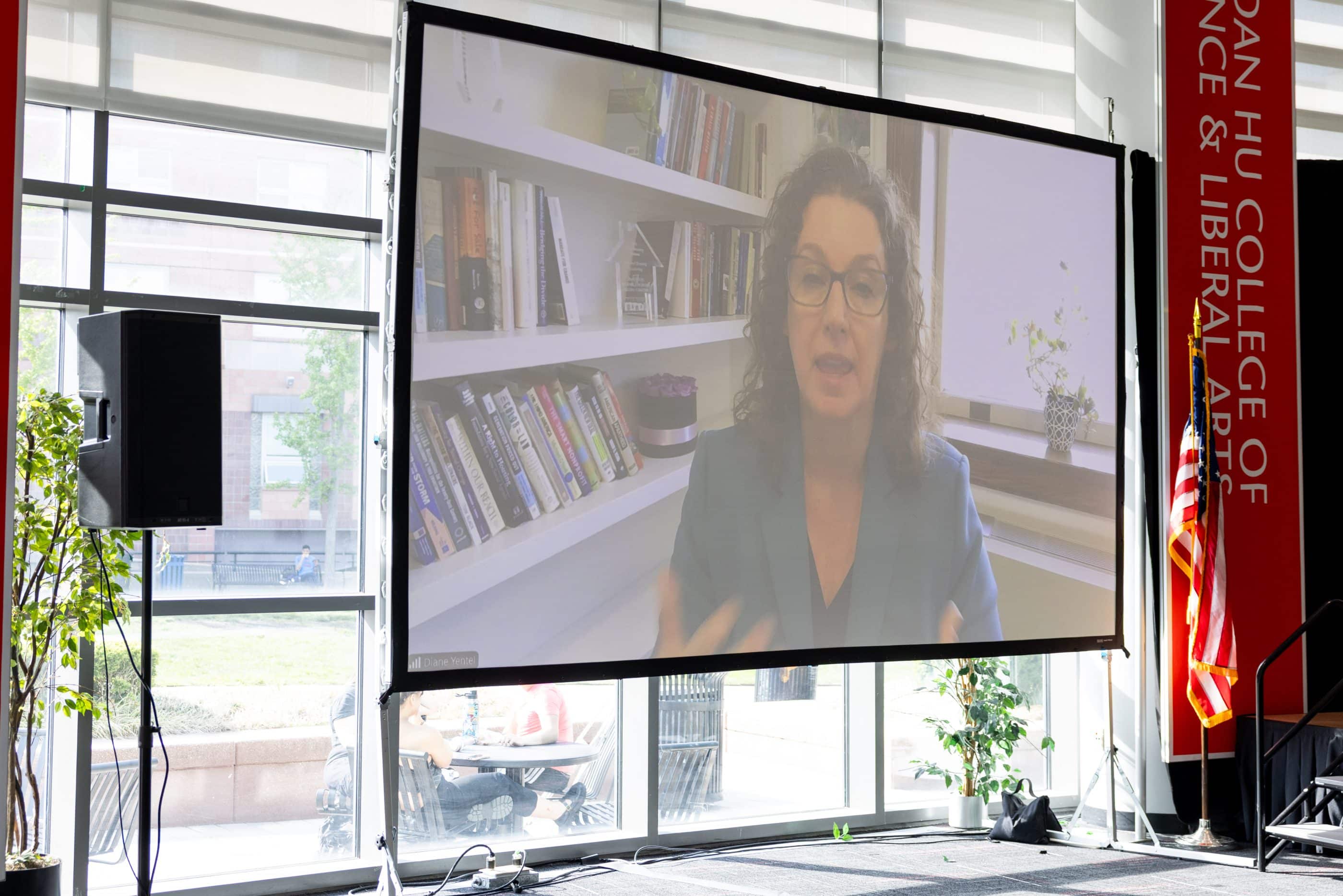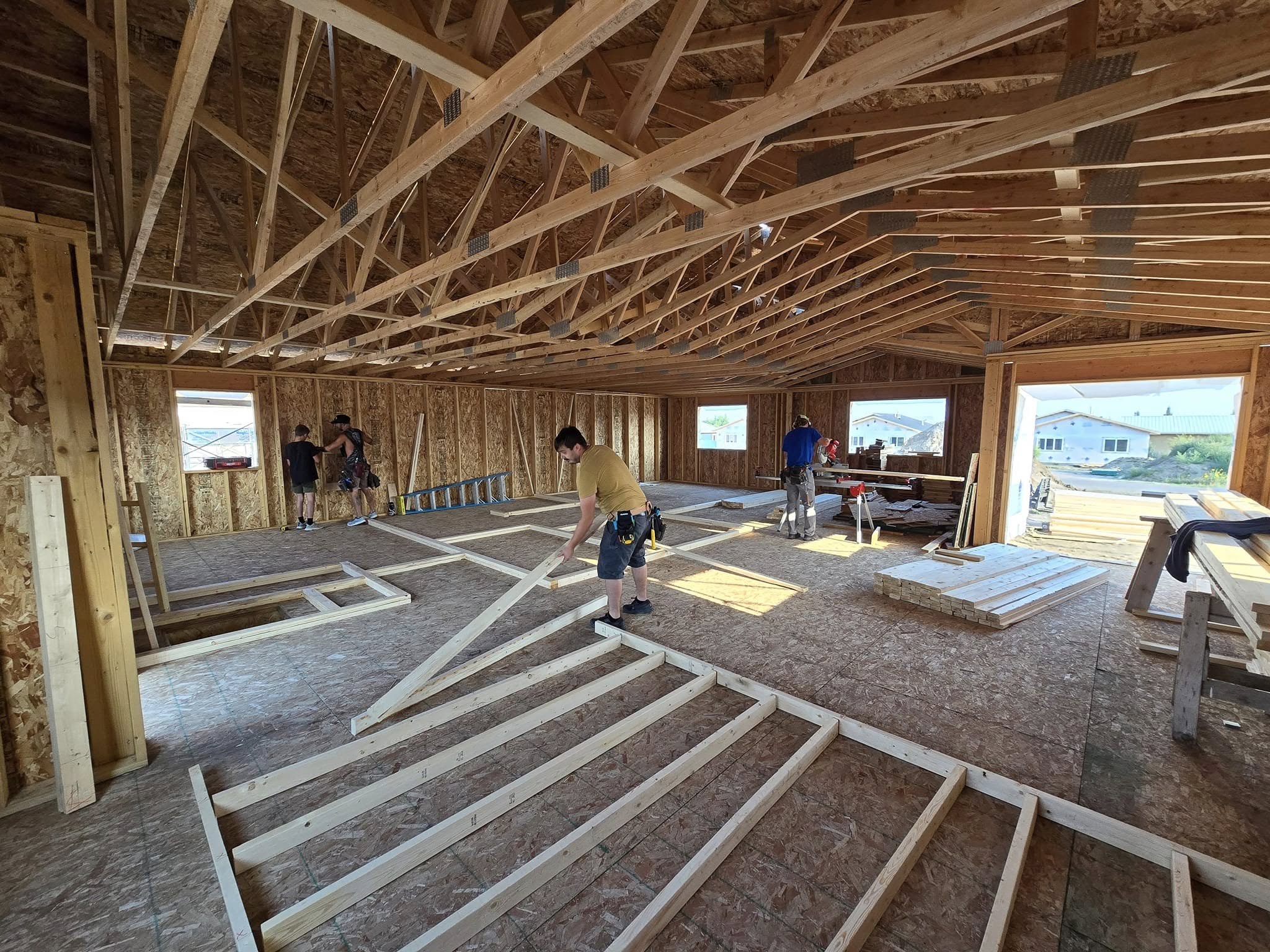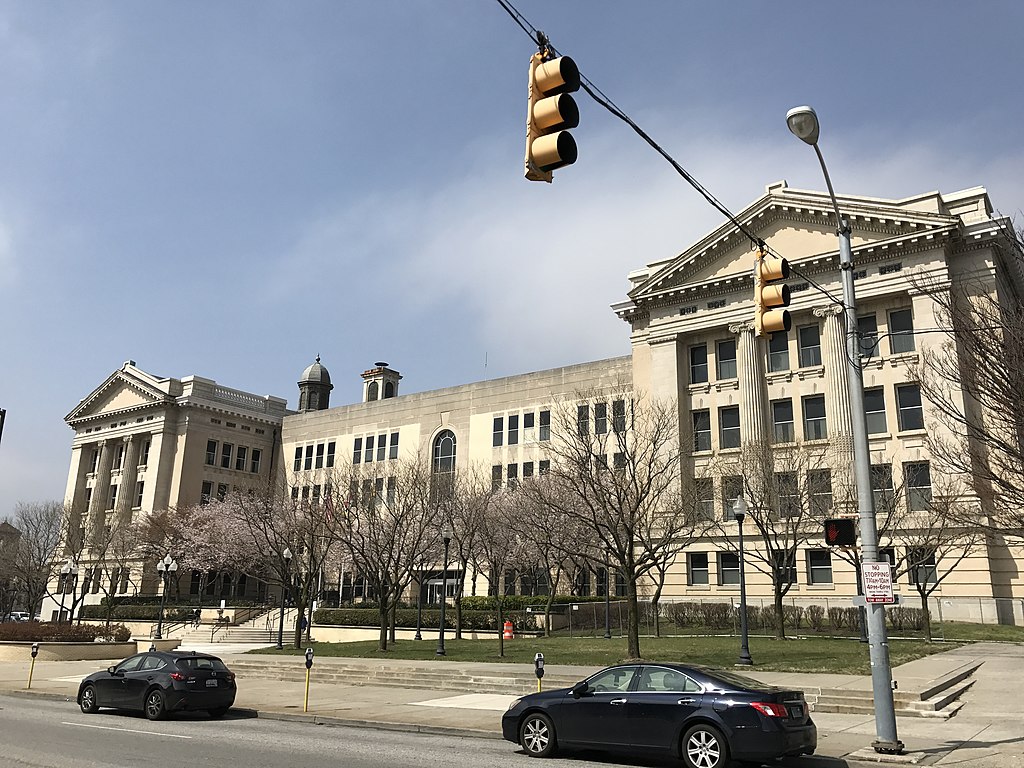This is a lightly edited excerpt from Diane Yentel’s keynote speech at Shelterforce’s 50th anniversary event on April 29. The message was so crucial we wanted to share it with everyone. You can read the full speech here.

2025 is a year of tremendous consequence for the nonprofit sector, a year with numerous threats, all originating from this administration’s clear efforts to suppress civil society, which it is doing in part by vilifying all nonprofit organizations as an enemy to be fought.
Truly, in nearly 30 years of working for or with nonprofit organizations, I’ve never seen a moment when the threats to the sector were so immediate, widespread, and potentially devastating.
Put simply—there isn’t a way for the nonprofit sector to end 2025 in a neutral place. There’s no ending this year more or less where we started it.
We’ll either end the year on a spectrum of harm, from somewhat harmed to potentially decimated, or we’ll end it strengthened, and not just in spite of, but because of the threats we face.
If we do this right, we can, as a sector, be strengthened:
- through new partnerships, collaborations, and expanded coalitions;
- through robust and clear communications to shore up support for nonprofits;
- with sophisticated new legal strategies;
- And most of all by uniting as a sector to respond to and defeat the threats.
Just as these threats to the nonprofit sector are new in their scope and severity, we in the nonprofit field must work together in new and expanded ways.
As an example of acting in new ways, National Council of Nonprofits (NCN) acted in a new-for-us (and new for the sector!) way by partnering with Democracy Forward to sue the administration just one week after inauguration (and, by the way, three weeks after I started at NCN!).
Ours was only the second lawsuit against the Trump administration, filed to stop the extraordinarily reckless and radical attempt by the White House to halt all federal spending overnight.
Imagine for a moment what that would have meant for the country. For your work. For people’s lives.
All federal funding stopped at once. Funding for rental assistance, for public housing repairs. For early education and health care. For food assistance. For homeless shelters. All funding stopped within 24 hours and with no end date for the freeze given.
That directive from the Office of Management and Budget (OMB) came through at around 8 p.m. on a Monday night. I had my first call that night with Democracy Forward by 10 p.m., and by 8 the next morning, we had committed to being the lead plaintiff in NCN vs. OMB, filed in court by noon.
This is the first time in NCN’s 35-year history that we were involved in any lawsuit, much less as the lead plaintiff against a sitting administration.
And it resulted in BIG and early wins: a halt to an action that would have had catastrophic consequences for the nonprofit sector and the people and communities it serves.
We were successful in getting an administrative stay, then in getting the administration to rescind the OMB memo, just one week after inauguration (a big loss for them). And, ultimately, our lawyers at Democracy Forward were successful in getting a nationwide permanent injunction against the actions in the memo, which is still in effect today.
We’ve since filed a second lawsuit with Democracy Forward, and achieved a second nationwide permanent injunction requiring the administration to fund crucial programs under the Inflation Reduction Act and the Bipartisan Infrastructure Law (often called the Infrastructure Investment and Jobs Act), including funding for housing weatherization programs, and for the new Green and Resilient Retrofit Program for HUD’s multifamily housing stock.
Beyond the immediate and obvious benefits of acting to defend the sector by getting needed funding flowing again, there are the many ripple effects of our collective actions. There are ripple effects every time any of us stand up, push back, speak out against the abnormal actions of this administration.
And we must speak out. I’m often asked, of all the threats to the nonprofit sector, what concerns me the most? My answer is—silence.
In this moment, with the onslaught of threats against civil society, what concerns me most is the silence of too many leaders, too many organizations.
Too many organizations are letting fear guide their actions. Too many are assuming if they stay very still and quiet, they won’t become a target of this vindictive administration.
Not only is that, in my view, morally suspect, given the work so many of us do; it’s also bad strategy.
If we are a nonprofit organization, we are a target of this administration. And, to paraphrase Audre Lorde, our silence won’t protect us. If there’s protection to be had for our sector, we’ll find it through visibility and solidarity. We’ll find it by being vocal about the threats, and united in our defense of the sector.
And the good news is, courage is contagious. So is hope. After we filed that first lawsuit, I can’t tell you how many people reached out to say they felt hope again for the first time in weeks, that the lawsuit broke through a deepening sense of dread and hopelessness they had felt following the dozens of harmful executive orders issued on Day 1.
I’ll share two stories about why courage and hope matter, why each of us using our voice and our power to speak out matters—now more than ever. These two stories, of many I could tell, especially stick with me.
One was from a woman who reached out to me soon after we filed the first lawsuit. She runs a rape crisis center in a rural area of a deep red state, the only rape crisis center in that state, with a team of two. She told me that our lawsuit with Democracy Forward showed her that someone was fighting for her, that it made her feel less alone and gave her strength to keep doing her work.
The other came more recently, from the CEO of a major national organization who, when they filed their lawsuit against the administration, told us that it was the strength and success of ours that gave them the courage and hope to file theirs.
This is what happens when we stand up and push back, when we speak out. Every act of courage creates hope and strength to keep working, keep fighting, and keep inspiring more courageous acts. You don’t know who needs to hear your voice right now, who needs to see your leadership, but I guarantee you that someone does, and that your courage will bolster theirs.
We all have a role to play. Shelterforce will continue to tell truthful and courageous stories about needed changes in the housing field, about the true harm to renters and housing providers from Trump administration proposals, about the people and organizations fighting for positive change every day.
And each of us, from whatever seat we’re in, whatever position we have, can speak out against all the mistruths being told by this administration about people who are homeless, renters, communities, and about the essential nonprofit organizations working with them all. We can and must instead tell the stories of our impact and our vital work, in every community throughout the country.
I know this time is incredibly worrisome and challenging for all of us. But remember that you’re not alone. Remember that we’re in this together, and that together, we are formidable. We won’t win every fight we have, but every battle to protect this sector and its essential work is worth fighting, and each is another opportunity to align as a sector in a way we never have before.
Already, we are more unified and more strengthened as a sector than ever before, not in spite of, but because of the challenges we face. This is how—together—we will protect the sector, and protect democracy, so that we can continue to work towards housing justice and so many other types of needed justice for the next 50 years.
So, many thanks to all of you, for your important work, day in and day out in your community, for showing up, and for speaking out. It’s never been more important.
And thanks again to Shelterforce for all your important work, and for the opportunity to be here today.





Comments